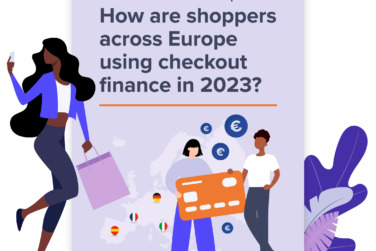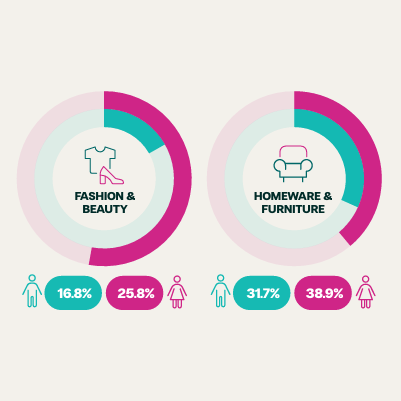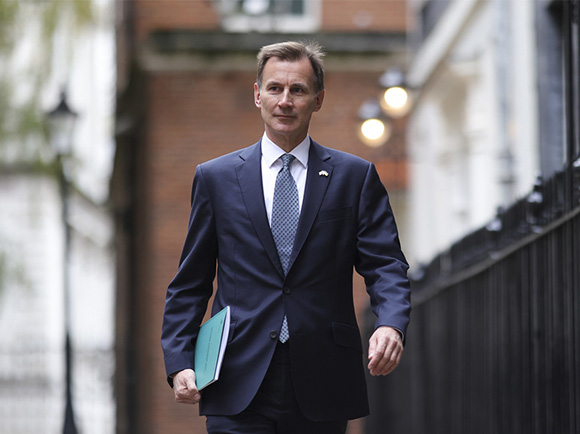BNPL regulation arrives: why it’s a positive step forward for consumer confidence

The Buy Now, Pay Later (BNPL) sector is all over the news right now, as the British government has made its first tentative steps towards regulation in the industry.
On the 20th June, the government announced it would be requiring BNPL providers to carry out affordability checks, ensure all loans are affordable for consumers, and to ensure communications offering Buy Now, Pay Later as a service are fair, clear and not misleading.
Lenders will also need to be approved by the Financial Conduct Authority (FCA) and consumers will now have the right to take any complaints to the Financial Ombudsman Service (FOS).
Regulation is here – but what does that mean for the sector?
The emergence of regulation in the BNPL space is not an unexpected development.
In fact, it has been on the horizon for many months, indeed even years now. And in that time, it has become one more piece in the vast and complex puzzle that media headlines have built up around Buy Now, Pay Later.
Thus, if you have been reading the news, you’ll probably have heard at least one of these three popular prophecies:
-
“There’s never been a better time for the BNPL sector! Investors are hurling money around, looking for new avenues to explore and exciting start-ups to back, while even some of the most established tech companies in the world are throwing their hats in – there’s nowhere but ‘up’ for the industry.”
-
“There’s stormy weather ahead for the sector, what with e-commerce growth decelerating, interest rates soaring and a worldwide cost-of-living crisis eating into consumers’ disposable income – you’d have to be brave to lend in this environment!”
-
“Buy Now, Pay Later is dying, and it’s regulation that’s killing it. As soon as governments start to crack down on the free-and-easy attitude lenders have taken to lending – which has unwittingly plunged young people into debt – consumers will switch back to more established payment methods like credit cards.”
The reality, of course, is a mixed picture (although, with regards to that third bullet point, let us say now that news of the retail finance industry’s death has been greatly exaggerated).
On the one hand, it’s easy to see how the BNPL sector is booming – the global value of transactions made through BNPL reached US$120 billion in 2021, accounting for 2.9% of all e-commerce transactions. Consumer appetite continues to grow, and BNPL is reaching into new markets worldwide.
On the other hand, an absence of regulation in the sector has allowed some providers to get away with the kind of reckless lending that has tainted the reputation of the entire Buy Now, Pay Later sector. It is unfortunately true that young people have been disproportionately affected by failures to repay – one in eight young BNPL shoppers in the UK have reported being chased by debt collectors.
Perhaps as a result of its mixed press coverage, Buy Now, Pay Later treads a fine line between being very popular – mainly for offering consumers greater choice and access to higher-value products – and at the same time somewhat unpopular due to the inherent risk that comes with taking out any form of loan.
Unfortunately, it is the sector’s unpopularity that makes for the most sensational headlines, with some reports jumping on the opportunity to erroneously correlate “dwindling consumer confidence” with increased regulation in the wider BNPL sector:
“Consumer confidence in the ballooning buy now, pay later category has taken a hit recently with the UK government considering tougher rules. Klarna’s decision to report new transactions to credit rating agencies could also seriously affect consumer choice to use its products.”
(Source: The Drum)
We, however, think it unfair to make this connection. We believe regulation will be a huge positive step forward for the sector, strengthening consumer confidence while ensuring there is a sustainable path forward for lenders and merchants. To understand why we think this, let’s take a short journey back through the history of BNPL regulation…
A brief history of BNPL regulation
Anyone launching a financial product into the UK economy – the 17th most-regulated market in the world – would have expected regulation from the very beginning.
However, we can forgive anyone who may have been starting to think it wouldn’t happen. For not only has BNPL in its current form (omnichannel, but with a heavy focus on e-commerce) been around for over a decade, the original Buy Now, Pay Later model (sometimes in the guise of ‘retail finance’) actually goes all the way back to the 19th Century. Despite having existed for all that time, the government has never directly implemented guidelines governing the practice specifically.
That is not to say the sector was unregulated – indeed, all consumer credit in the UK is regulated under the terms of the Consumer Credit Act (CCA) 1974, which is enforced by Her Majesty’s Treasury (HMT) and the Financial Conduct Authority (FCA).
However, this act offered finance providers one quote-unquote “loophole,” which was that an exemption applied in the case of delayed payment of goods and services so long as that delay was time-limited and did not incur interest. This (again, quote-unquote) “loophole” is what allowed businesses to create the repayment system that is now popularly referred to as Buy Now, Pay Later.
To emphasise: Buy Now, Pay Later in its current form is compliant with the legal framework of Her Majesty’s Treasury and the Financial Conduct Authority. Nonetheless, that “loophole” in the CCA opened the door to a sudden and sharp growth of BNPL products during the 2010s, which in turn led to concerns over: the way credit was being promoted to customers; the lack of affordability assessments; and inconsistent treatment of customers, especially those who were experiencing financial difficulty.
Thus, HMT and the FCA set about creating the first framework designed to specifically regulate BNPL. That governance has been gradually surfacing over the last couple of years. The FCA published their first set of specific rules in 2019, which, among other changes, banned lenders from charging backdated interest on money that had been repaid by the consumer during the BNPL offer period. That was quickly followed in 2020 by the announcement that the FCA had earmarked a full review of the sector to be chaired by Chris Woolard, and in February 2021, that report – The Woolard Review – was published. That review was then passed to HMT for consultation.
Now, the results of this consultation are starting to be seen. First, there was the announcement that the CCA would be passed over to the FCA so they could regulate it directly, without needing to go back-and-forth between the government and HMT; that was followed shortly after by the announcement that the first regulatory changes to the BNPL sector would be implemented from 20th June 2022.
How will regulation impact the sector?
The Woolard Review made the case that there was “an urgent need to regulate all buy now pay later (BNPL) products,” warning that “while the emergence of unregulated BNPL products has provided a meaningful alternative to payday loans and other forms of credit, BNPL also represents a significant potential consumer harm.”
However, the Review stressed that regulation should not to stymie lenders or deter shoppers from choosing BNPL – rather, any regulations implemented set out to create a “healthy, sustainable market” that could benefit both sides.
Indeed, an overarching theme from The Review was that regulations should attempt to steer BNPL providers towards providing better communications to their customers. This is no surprise, as the need for greater clarity and transparency has been apparent in the sector for some time.
For instance, a Capco survey in 2021 found that 57% of respondents aged 18–34 were unsure whether choosing BNPL meant they would be “taking on debt” or “deferring a payment,” while over half of those surveyed agreed that BNPL providers should consider a loanee’s credit history before any finance was approved.
The regulations now coming into effect mean that the UK is the first country to have a regulated Buy Now, Pay Later sector. This will undoubtedly set a precedent for other countries to follow. Thankfully, it seems the government has listened to the advice of the Woolard Review, and has taken the necessary steps to ensure the sector can continue to thrive, albeit in a more consumer-conscious manner.
In announcing the new regulations, Economic Secretary to the Treasury John Glen said: “Buy-Now Pay-Later can be a helpful way to manage your finances but we need to ensure that people can embrace new products and services with the appropriate protections in place.
“By holding Buy-Now Pay-Later to the high standards we expect of other loans and forms of credit, we are protecting consumers and fostering the safe growth of this innovative market in the UK.”
Can regulation benefit the industry?
The Woolard Review was correct in its estimation that there was significant potential for BNPL products to be abused, although it is our belief at Divido that this event is quite rare.
Rather, what we have seen more often are BNPL providers who fail in their duty of care to their end-users, albeit often inadvertently.
Some, for instance, fast-track customers through the finance process in order to speed up a sale, which deflects the customer’s attention away from signs that they are entering into a binding debt agreement that could have repercussions upon their credit file.
Some use only a soft credit check, or in rare instances no credit check at all, to qualify a shopper for a loan, which has led to situations in which vulnerable customers have been approved for finance they could not afford.
Some could also be accused of offering retail finance in unethical ways – consider the case of gas stations in America that allow customers to pay for fuel using BNPL in order to meet the rising cost of living, or online retailers who let consumers split unnecessary costs (as in the case of one retailer we found who allow shoppers to use BNPL when purchasing low-ticket items, such as a pair of socks).
The UK government’s announcement is a great first step towards stamping these sorts out of practices out, once and for all, and will thus help to raise the profile of our industry.
We should stress, as a provider of BNPL solutions ourselves, that no party involved in the Buy Now, Pay Later process – whether a provider, a lender or a merchant – wants to see a customer struggle to make their repayments. Debt recovery is a significant and often fruitless expense, costing more in time and resources than it is often able to recover, and made all the less palatable when one considers the brand damage that can occur when a business is forced to chase a valued customer over an unpaid debt.
Indeed, we would posit that every party invested in the Buy Now, Pay Later process should want to get behind greater regulation in the market, for their own sake as well as for their customers.
That is why we at Divido are strongly in favour of regulation and committed to ensuring our platform is fully compliant. In fact, having foreseen regulation a long way off, we can proudly say that we have built our business in a compliant way since the beginning, by utilising a business model that ensures far greater security for lenders, merchants and shoppers.
And how, you ask, have we done this?
Why models matter
In their consultation document, released in the wake of the Woolard Review, HMT defined two key models of short term financing currently available in the market, which they called the ‘Unregulated BNPL model’ and the ‘Short-term interest free credit model’.
In the ‘Unregulated BNPL model’, consumers enter into a direct relationship with a third-party credit provider at the point of sale, essentially borrowing money from that provider to fund a purchase. This model was implied to be higher risk and the most in need of regulation.
At Divido, we operate on the second (‘Short-term interest free credit’) model. This is where a consumer enters into a relationship not with a BNPL provider, but with either the retailer themselves or an established lender (such as a bank). These transactions, the consultation points out, are typically higher value, and credit must be re-applied for at each individual purchase, meaning this form of credit is “inherently lower risk.” Nonetheless, it is open to many of the same criticisms (poor communication, potential to create indebtedness, impact on a person’s credit file, etc.) as the unregulated model.
Because we operate on the more established short-term interest free credit model – providing a white-label platform for banks and retailers to offer their own retail finance, rather than lending from our own balance sheet – we do not believe Divido will be negatively affected by regulatory changes brought about by The Woolard Review.
As we work mainly with Tier 1 lenders, we have high trust in the level of regulatory maturity offered by those who utilise the Divido platform. This is borne out by the fact that we tend to see extremely low volumes of failures to repay, and that trust in our products and our partners remains consistently high.
Being an entity that has been strict on regulating itself since our inception in 2014, we believe regulatory changes will improve perceptions of our industry and increase, rather than decrease consumer confidence in BNPL as an option for POS finance.
Conclusion: towards a better perception of retail finance
We hope that the new regulatory changes in the UK will encourage other BNPL providers to seek more secure models of financing, for the benefit of their businesses, their retail partners and their customers.
We hope that our sector can achieve a greater level of transparency, consistency and take essential steps towards mitigating risk, so that consumers can continue to benefit from the increased choice made available to them via BNPL.
Moreover, we hope that the media will start to report more fairly on the industry, moving past its perception of the unregulated BNPL model as representative of the entire sector, and changing its angle around regulation, from seeing it as something that will stifle towards something that will improve confidence in the sector.
At Divido, we have spoken at length over the last year about regulation in the BNPL sector, with the hope of both informing the public and our partners about what to expect, and to alleviate some of the ‘doom and gloom’ surrounding the messaging. See, for instance:
All the while, our emphasis has remained the same: that regulation is both necessary and beneficial for the sector, and that everyone with a vested interest in BNPL – whether as an investor, a lender, a vendor or a customer – should welcome the changes brought about by improved regulation.
Today, as regulation starts to take effect, we once again stress the importance of this message.
In the case of Divido, while we operate in the same space as many other lenders, we tread a different path. That is why we choose to work with lenders and merchants who are well-equipped to offer financial products that will benefit consumer’s lives and adapt to the ways in which buyers choose to finance their purchases.
We are bullish about the future of the retail finance industry and urge our clients to look beyond the headlines of industry nay-sayers, instead seeing a sector that is thriving, growing and finally offering a solution that people have clearly been hungry for.
Divido is the platform partner enabling lenders and merchants to launch their own-brand checkout finance, fast. Consumer journeys are seamless, and can be optimised to convert more customers at every point of sale, online and in-store.
Keen to know more?








